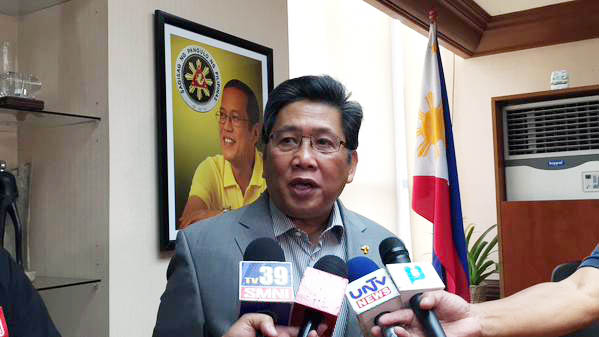If a 7.2-magnitude earthquake hits Metro Manila due to the movement of the West Valley Fault, President Benigno Aquino III will have to ride a helicopter going to Camp Aguinaldo in Quezon City, where he will monitor the situation.
At least that is what he will do, according to the Metropolitan Manila Development Authority (MMDA), which organized the drill.
But on Thursday, during the Metro Manila Shake Drill, Aquino was missing in action.
“Ginawa ng Pangulo ang nararapat ayon sa kanyang pagpapasya,” Communications Secretary Herminio Coloma Jr. told Palace reporters when asked why Aquino didn’t decide to join the city’s quake drill.
(The President does what he thinks is right.)
He confirmed that Aquino monitored what was happening while in his official residence in Bahay Pangarap.
Asked what the President will do in case of a real disaster, Coloma said the Presidential Security Group (PSG) has its own plans to follow.
“Basta ang mahalaga dito ay ‘yung deklarasyon na mayroong mga nakahandang protocol ang ating Presidential Security Group hinggil sa mga dapat na hakbang na kanilang isasagawa sa takdang panahon,” he said.
(What is important is the declaration that the Presidential Security Group has a prepared protocol on what steps to take at the right time.)
Coloma, nevertheless, said it is important to inculcate a culture of disaster risk reduction and management and in the case of the earthquake simulation, the focus is on the response.
He said it is also important to pursue proactive risk reduction including the amendment of building standards.
Starting 10:30 a.m. on Thursday morning, thousands of groups participated in the metro wide quake drill, which involved scenarios of falling structures and fires.
According to the Philippine Institute of Volcanology and Seismology (Phivolcs), 34,000 people may die within an hour after the “big one” strikes Metro Manila and nearby provinces. A study by the Phivolcs, the MMDA, and the Japan International Cooperation Agency made a detailed damage analysis of the quake to determine vulnerabilities and changes that need to be implemented to make the metropolis more resilient.
RELATED VIDEOS
